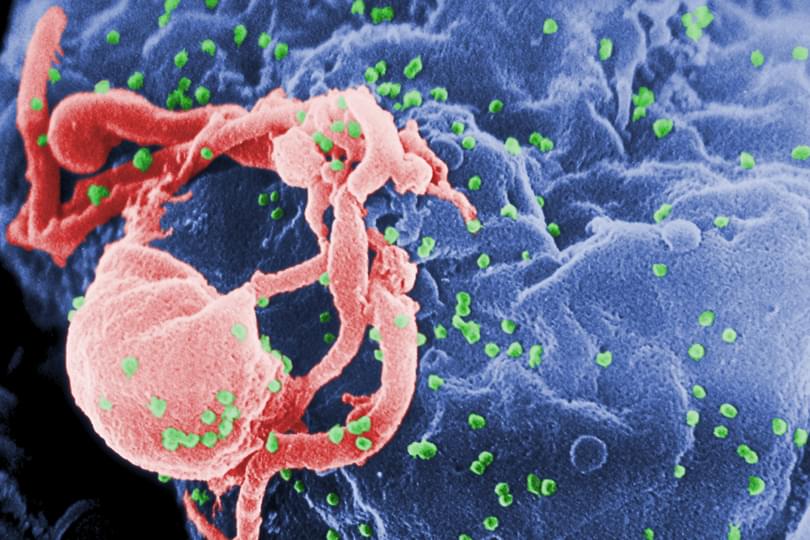
The first patient to receive a new therapy directed at curing HIV in a study involving Oxford Martin School researcher John Frater has now completed the trial treatment, media have reported.
The Sunday Times (2 October, 2016) reported that a 44-year-old man had completed the RIVER clinical trial without any adverse effects. The trial is investigating whether HIV can be cured by waking a reservoir of cells infected with the dormant virus and killing them using the immune system.
HIV expert Dr John Frater, Co-Director of the Oxford Martin Institute for Emerging Infections, is leading the laboratory work testing the theory, called ‘kick and kill’. The trial is being run by the CHERUB collaboration of universities leading work in HIV eradication: the University of Oxford, the University of Cambridge, Imperial College London, King’s College London and University College London.
HIV is treatable using Antiretroviral Therapy (ART), which works by stopping HIV from copying itself and spreading. In the RIVER study, in addition to standard ART, novel drugs are being tested to see if they can wake up or activate the HIV-infected reservoir cells. The additional medication that wakes up the virus from the reservoir cells is called vorinostat – the ‘kick’. RIVER then uses two vaccines that will teach the cells of the immune system to recognise these newly activated reservoir cells and kill them - the ‘kill’.
Commenting in the Sunday Times, Mark Samuels, managing director of the National Institute for Health Research Office for Clinical Research Infrastructure, which set up the CHERUB consortium, said: “This is one of the first serious attempts at a full cure for HIV. We are exploring the real possibility of curing HIV. This is a huge challenge.”
Professor Sarah Fidler, consultant physician at Imperial College London, told the newspaper: “This therapy is specifically designed to clear the body of all HIV viruses, including dormant ones.
“It has worked in the laboratory and there is good evidence it will work in humans too but we must stress we are still a long way from any actual therapy.
“We will continue with medical tests for the next five years and at the moment we are not recommending stopping ART but in the future depending on the test results we may explore this.”
The Oxford Martin School supports Professor Frater’s work with the CHERUB collaboration, which is running the RIVER trial.